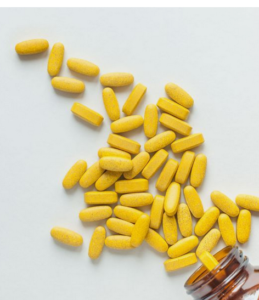
Veganism has become increasingly popular in recent years, as more people have become aware of the negative impact that animal agriculture can have on the environment and our health. However, removing animal products from your diet can also mean missing out on important nutrients that are essential for good health. This has led to the question, do vegans need to take supplements? In this blog post, we’ll dive into the details and give you all of the information you need to make the best choices for your health.
First of all, it’s important to understand what nutrients may be lacking in a vegan diet. The most common ones are vitamin B12, vitamin D, omega-3 fatty acids, iron, calcium, and zinc. While some of these nutrients can be found in plant-based foods, they may not be as easily absorbed by the body as they are from animal products. This means that vegans may need to pay extra attention to getting enough of these nutrients, and supplements may be necessary.
Let’s start with vitamin B12, which is arguably the most important nutrient that vegans need to supplement with. Vitamin B12 is only found naturally in animal products, so vegans will need to either take a supplement or eat foods that have been fortified with B12. Without enough B12, vegans can experience fatigue, weakness, and even nerve damage. It’s important to regularly check your B12 levels to ensure that you’re getting enough.
Vitamin D is another nutrient that many people are deficient in, regardless of whether they’re vegan or not. While our bodies can produce vitamin D when we’re exposed to sunlight, many people don’t get enough sun exposure to produce adequate amounts of this vitamin. Vegans can get vitamin D from fortified foods like plant-based milks and cereals, but supplementation may be necessary for those who don’t get enough sun exposure or fortified foods.
Omega-3 fatty acids are important for brain and heart health, and they’re mostly found in fish and other seafood. However, there are plant-based sources of omega-3s like flax seeds and chia seeds. Vegans may need to supplement with an algae-based omega-3 supplement to ensure that they’re getting enough of this important nutrient.
Finally, iron, calcium, and zinc are all important minerals that can be lacking in a vegan diet. Vegans can get iron from leafy greens, legumes, and fortified foods, but a supplement may be necessary for those who are at risk of deficiency. Vegans can get calcium from fortified plant-based milk and leafy greens, but a supplement may be necessary for those who don’t consume enough of these foods. Zinc can be found in legumes, nuts, and seeds, but supplementation may be necessary for those who don’t consume enough of these foods.
In conclusion, while it’s certainly possible to get all of the necessary nutrients on a vegan diet, it can be challenging to do so without paying close attention to your food choices. Many vegans choose to take supplements to ensure that they’re getting all of the necessary nutrients for good health. If you’re considering a vegan diet, we recommend talking to your healthcare provider and a registered dietician to come up with a plan that works best for you. With some careful planning and attention to your diet, it’s possible to thrive on a vegan diet and stay healthy for life.


Follow Us